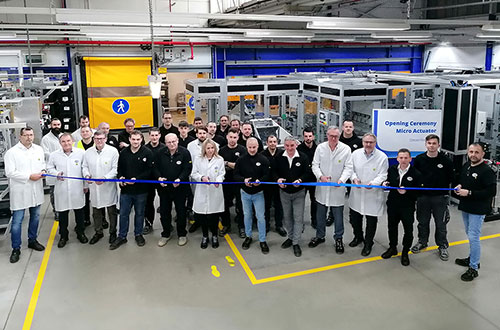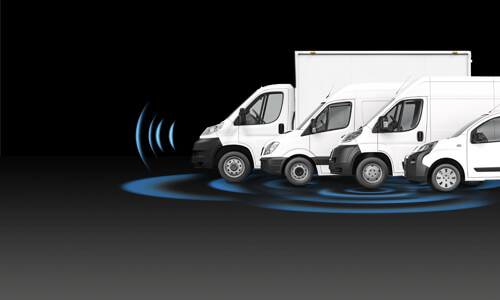|
|
|
|
|
|
|
|

Electromobility in the municipal sector: opportunities and challenges
28-02-2022It has become clear that electric vehicles play an important role in future mobility. These vehicles are already very appealing as a result of their zero emissions, lower operating noise and cheaper maintenance costs. If it were not for the comparatively higher prices and shorter ranges of the alternative mobility options, there would probably already be more of them on the roads. With increasing battery densities and higher industry standardisation, these two problems are likely to become gradually less significant in the future. However, there is already an area in which a long vehicle range is not important: the municipal sector.
The keypoints in short
- Operating conditions in the municipal sector are perfectly suited to e-vehicles
- The risk of accidents due to a lack of "typical" driving noises is increasing
- Safety in road traffic can be increased by HELLA's AVAS sensor
Less downtime for maintenance, more useful life
Machines used for greenkeeping and landscaping maintenance, refuse collection and street cleaning, as well as sweepers and snow ploughs are in operation all day, but do not usually have to cover particularly long distances. These operating conditions are perfect for e-mobility. Many municipalities have already recognised this and have made the switch with their municipal operations. Apart from the active contribution to climate protection, there is also an economic reason for making this choice. The operating costs of electric vehicles are significantly lower than those for vehicles with combustion engines, as they are less susceptible to maintenance.
The AVAS from HELLA produces a clearly perceptible, artificial engine noise
Too silent for normal operation
With new technology, however, come new challenges. Apart from the tedious matter of charging the batteries and the problem of an undeveloped charging infrastructure, electric vehicles also bring about a disadvantage that is initially not perceived as such: they are too silent. This may at first sound like peace and quiet for city centres, but a silent vehicle is also an accident risk. It is simply impossible to hear approaching vehicles.
Learn more about the acoustic warning system AVAS.




